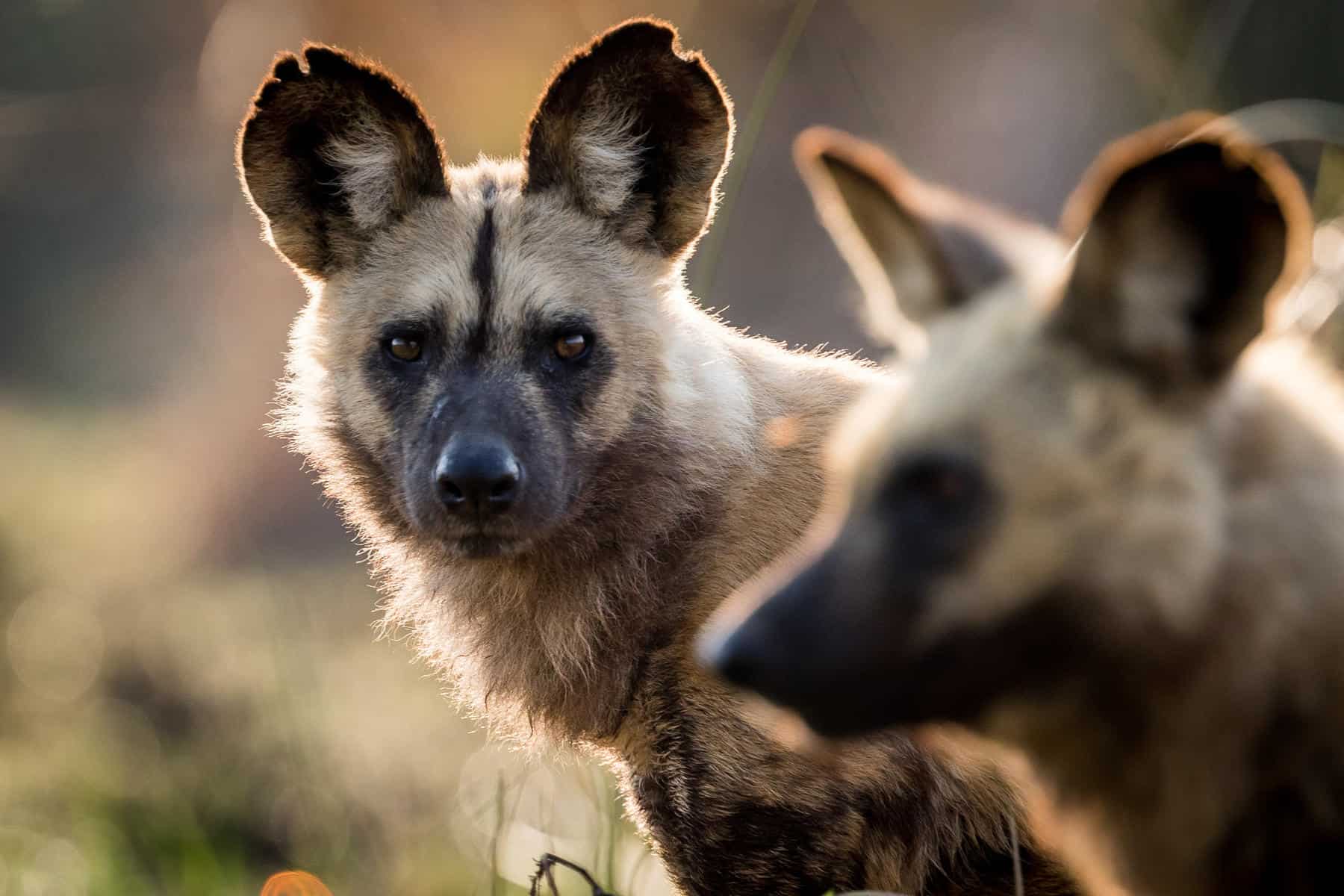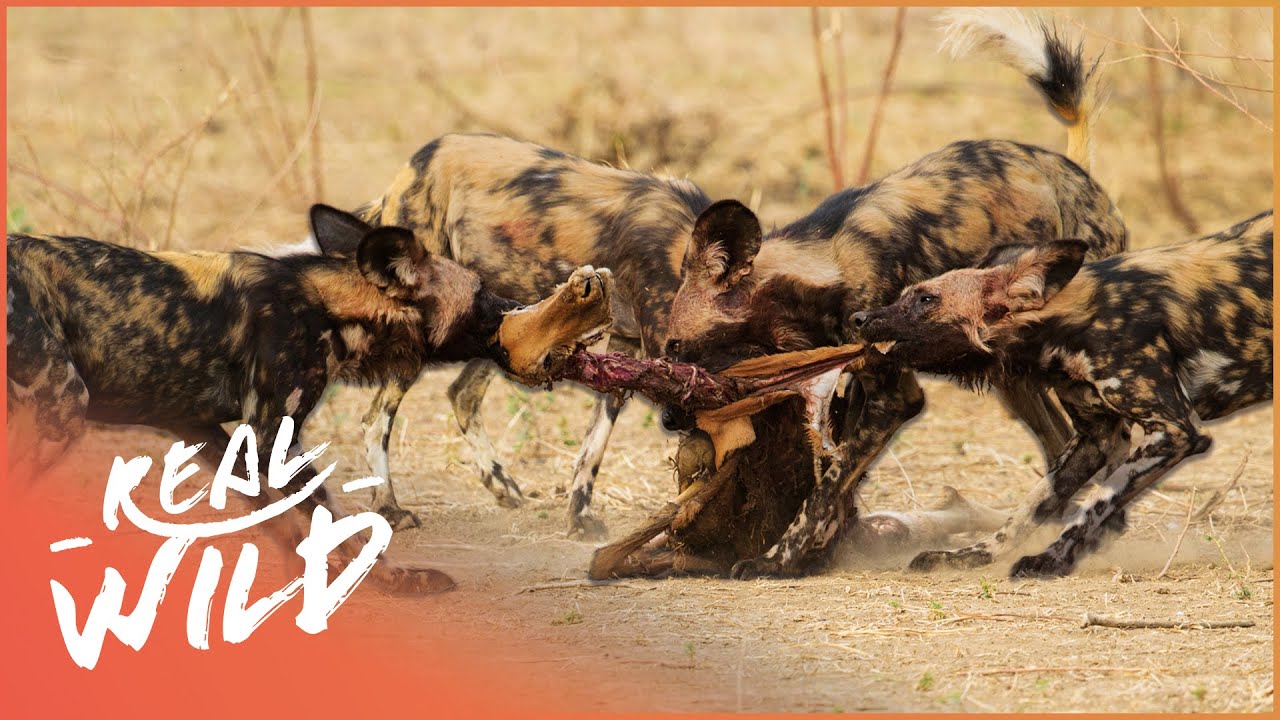Native to sub-Saharan Africa and found mostly in savannas and lightly wooded areas, the African wild dog is one of Africa’s most endangered but fascinating animals. Hunting in packs to take down prey much larger than itself, the African wild dog is part of a strict social structure that ensures the survival of the pack. These animals are very efficient hunters, typically only needing to eat once a day. Find out more about these remarkable creatures below:
- Unique Appearance: Just like a human fingerprint, every African wild dog has its own unique pattern of brown, black, yellow, and white. This striking mottled coat is what gives them the name ‘painted dogs’.
- Endurance Hunters: Rather than rely on stealth or strength, African wild dogs are endurance hunters. They will pursue their prey in relentless long-distance chases until the animal is too exhausted to escape.
- Communication: African wild dogs communicate by touch, action, and vocalization. They also engage in a unique ‘greeting ceremony’ that reinforces social bonds within the pack.
- Reproduction: The pack’s dominant female gives birth to a litter of six to 16 pups. Every member of the pack will care for the pups, regurgitating food for them until they are mature enough to join in on hunts.
- Health: Unfortunately, African wild dogs are susceptible to a number of diseases, including rabies, distemper, and canine parvovirus. Other threats include habitat loss and human-wildlife conflict.
- Lifespan: This species typically lives for about 10 to 12 years in the wild, although they can live slightly longer in captivity.
- Diet: The African wild dog is carnivorous, and feeds mostly on gazelles and other antelopes. They’re also known to eat rodents, birds, and even larger animals like wildebeests.
- Social Structure: African wild dogs live in packs typically dominated by a monogamous breeding couple. Each pack follows a strict hierarchy, with every member having a specific role, from hunter to babysitter.
Painted Dogs and the Art of the Hunt
African wild dogs are potent hunters, enjoying a success rate of 80%. Working together, a pack can bring down large prey, and can reach speeds of 45 miles per hour (72 kilometers per hour). Their speed and agility wear down their prey before the carnivores close in for the kill. Here’s how they hunt, step-by-step:
- The pack will first spot its prey, using its keen sense of smell and sharp eyesight to track it down.
- Once the prey has been spotted, the pack will surround it, using barks and howls to keep it trapped.
- Typically the prey will try to outrun the pack, but the pack will hound it down, even over long distances.
- Once the prey has been killed, the pack will share the kill, with the dominant alpha couple getting first picking.
African wild dogs hunt in the early morning or late evening when their prey has a lower chance of spotting them. They’ll often use their tails to communicate with each other during a hunt – a wagging tail indicates the hunt is going well, while a dropping tail indicates that the prey is getting away.
Once widespread, African wild dogs are now critically endangered, but a number of conservation projects are underway to protect this remarkable species for the future.











 Blog List
Blog List









Written by Johnieka Holtzhausen
• Travel Writer